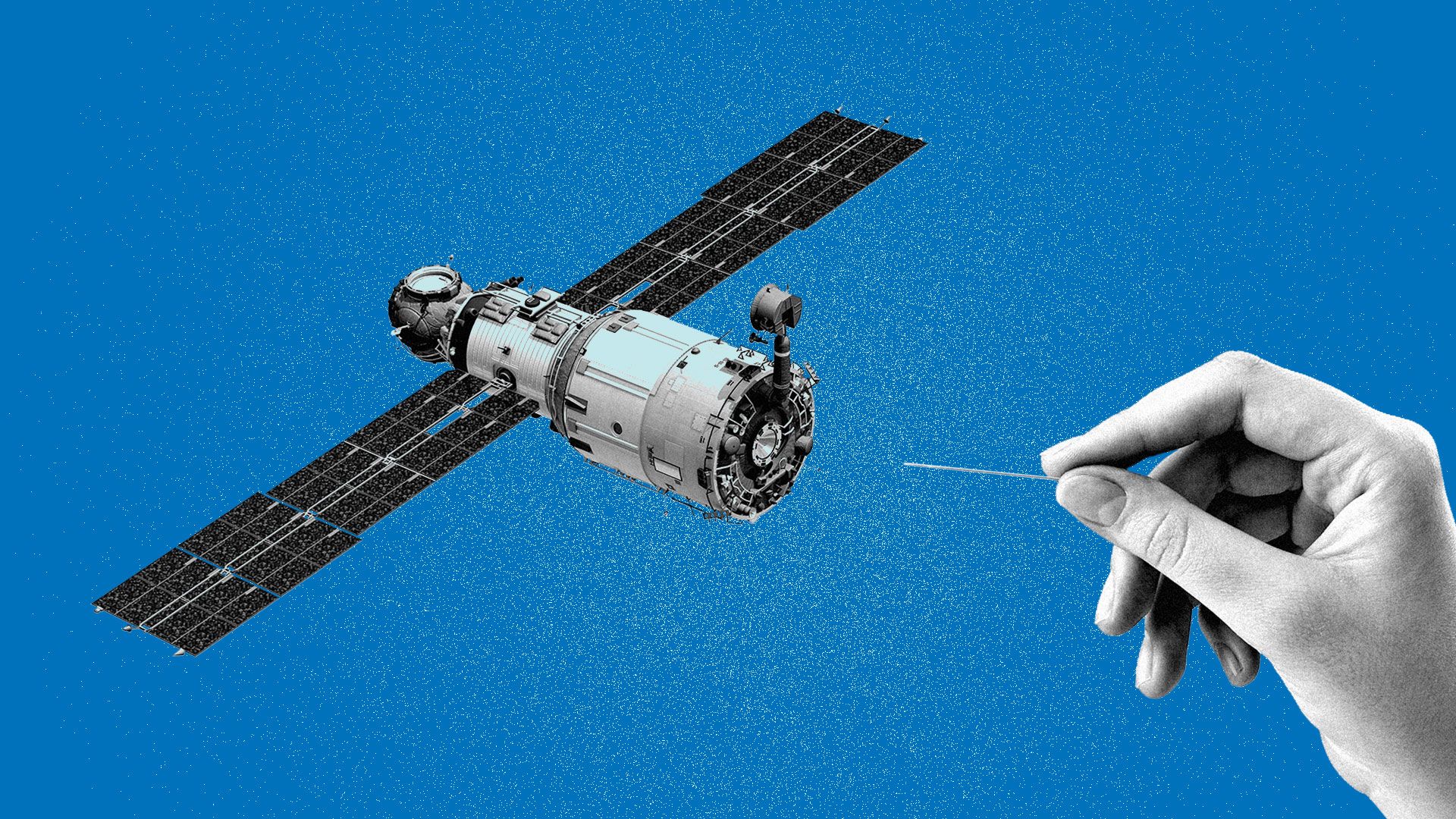
Illustration: Aïda Amer/Axios
Satellite navigation systems like the Global Positioning System (GPS)
make so many different pieces of our global infrastructure tick that
most countries treat their signals as sacrosanct, knowing that
interfering with them could have devastating effects. But a new report released Tuesday is giving us the first broad view of a country — Russia — that's pervasively tampering with the service.
The big picture: Global
navigation satellites — including GPS and less-used competing services
like Russia's GLONASS — are coordinated networks of atomic clocks in
outer space that can be used to triangulate precise locations or
coordinate precise timing. Without them, everything from global shipping
to financial markets would suffer.
Why it matters: It's
easy to see the military, transportation and pizza delivery importance
of precise location information. The timing signals are extremely
important, too.
- The stock market needs precision timing to handle transactions down to the fractional second.
- Precise
timing is a critical component in telecommunications because it allows
national and international networks to synchronize.
The intrigue: Russia
has been called out several times before for interfering with global
positioning satellite systems, and it is known to capitalize on
interfering with GPS for military and national security purposes like no
other country. But before the study by the C4ADS think tank, no one had really taken a scientific look across all of
Russia's activities to see how constant the disruptions are.
- To
do that, C4ADS used University of Texas equipment placed on the
International Space Station to monitor more than 9,800 suspected
instances since 2016 where fraudulent global navigation signals appear
to have been broadcast in the Russian Federation, as well as instances
where similar signals were broadcast in Russian conflict zones like
Crimea and Syria.
C4ADS is not formally accusing the
Russian government of being behind any of the fraudulent, "spoofed"
signals. It would be impossible to make that kind of determination from
the space station.
But, but, but: It is clear that many of the instances largely serve Russian national interests.
- In
Russia, C4ADS found that several spoofed signals came from areas where
Russian VIPs (like President Vladimir Putin) were traveling or that
contained military or domestic facilities Russia wants to protect
(including a "multimillion-dollar 'palace'" reportedly built for Putin).
- Those areas broadcast the coordinates of airports in places where there are no airports.
- The
spoofing was frequent enough that C4ADS reports the Russian internet
firm Yandex had to redesign its ride sharing app. Otherwise, it billed
passengers for sudden trips to the airport whenever their driver passed
through a spoofed area.
- Airports that mysteriously seemed to
appear in the Black Sea were so disruptive that the United States issued
a warning to international cargo firms.
Why airports? Many
manufacturers of drones use GPS chips to prevent their products from
flying into airport airspace. C4ADS suspects the spoofing was to prevent
drone attacks or surveillance.
Meanwhile, Russia also used spoofing in combat zones, particularly Syria, to try to limit attacks against its installations.
Go deeper: Read more, including how Moscow uses GPS hacking in battle.